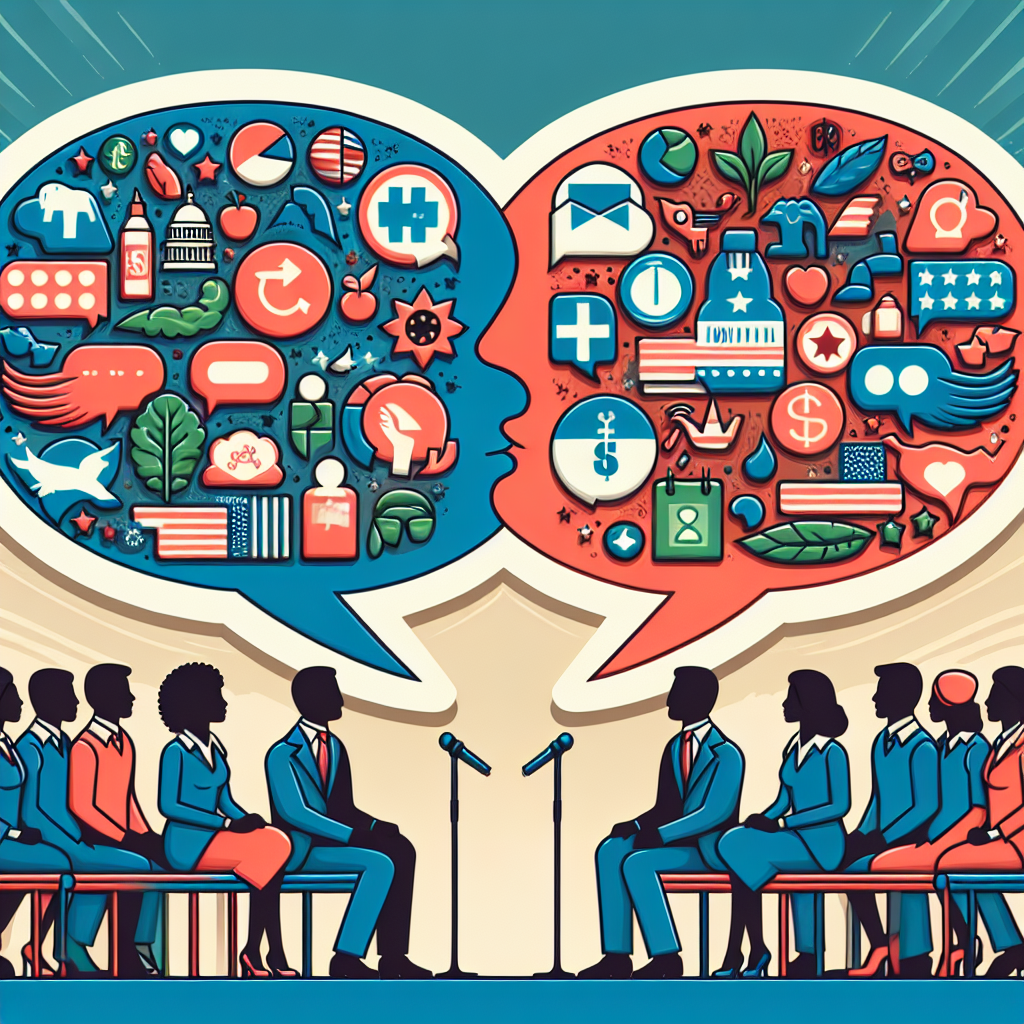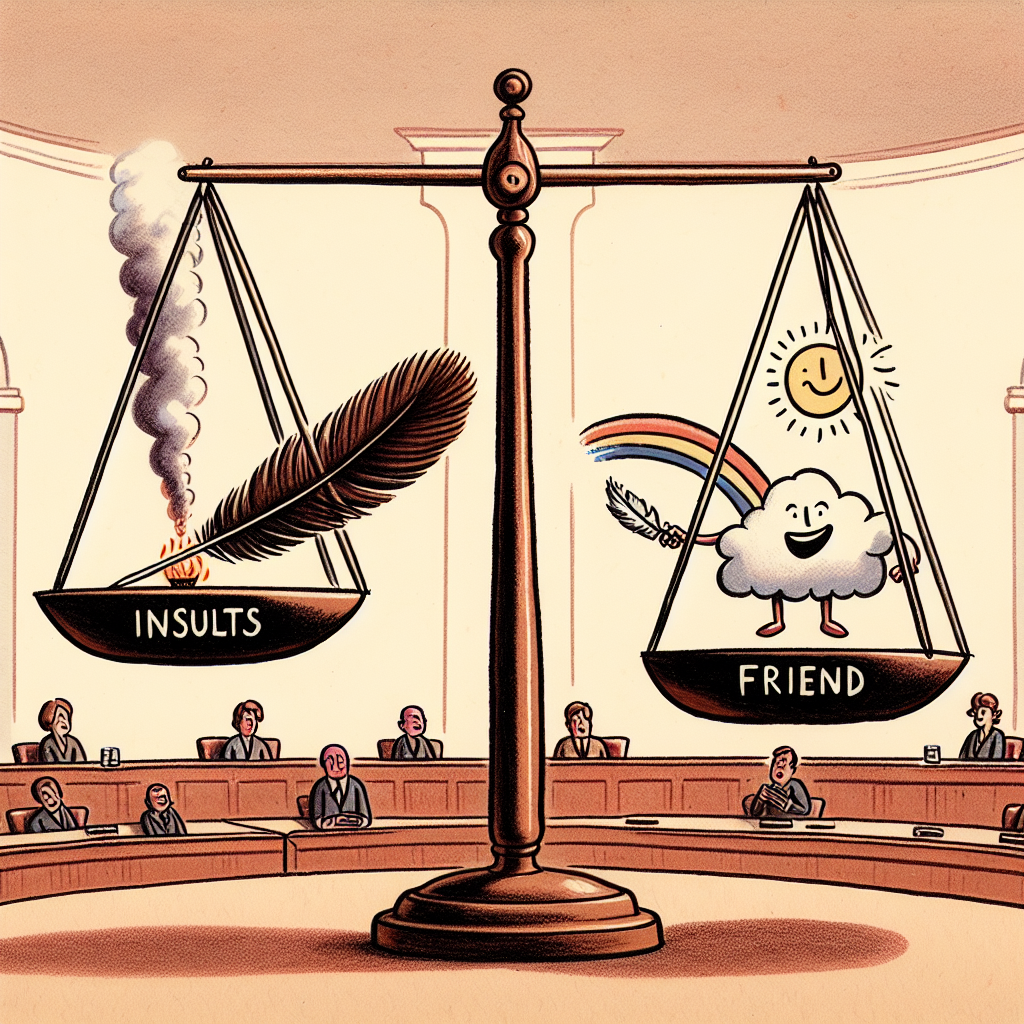
Introduction
In 2025, the role of debates in shaping public opinion and informing citizen choices has never been more critical. As political polarization increases and misinformation spreads, the effectiveness of debates allows voters to assess candidates, policies, and their implications more holistically. Engaging in debates offers citizens a platform to evaluate competing arguments, enhancing their understanding of the political landscape. This article delves into the effectiveness of debates in informing citizen choices, exploring their impact on democratic engagement, voter decision-making, and public discourse.
Understanding the Role of Debates in Democracy
Debates are foundational to a healthy democracy as they foster a forum for the public to engage with candidates and their policies. They represent an opportunity for voters to hear firsthand the perspectives of those vying for office, capturing the essence of differing ideologies and policy proposals. By presenting arguments and counterarguments, debates help clarify complex issues. This transparency is crucial in an age characterized by a plethora of information sources, where citizens must sift through varying narratives to find trustworthy information.
Moreover, debates serve to hold candidates accountable. When faced with direct questioning from opponents and moderators, candidates are pushed to articulate their positions clearly and defend them against scrutiny. This dynamic not only reveals the strengths and weaknesses of each candidate’s platform but also encourages a more informed electorate. As debates unfold, citizens can gauge candidates’ readiness to take on the responsibilities of office, thereby facilitating more informed decision-making at the ballot box.
The Impact of Debates on Voter Decision-Making
The presence and quality of debates can significantly influence voter decision-making. Research has indicated that debates often serve as pivotal moments in campaigns, swaying undecided voters or solidifying support among those already inclined toward a particular candidate. In the 2025 elections, numerous studies have shown that a single debate can enhance a candidate’s favorability, showing how effective performances can resonate with citizens and impact their voting choices.
Moreover, debates can illuminate critical issues that might otherwise be neglected in traditional campaign ads or social media platforms. Candidates are compelled to confront and discuss topical subjects, enabling voters to evaluate their stance on pressing matters. This element of direct engagement allows voters to focus on critical issues, thereby acting as a catalyst for informed choices. The effective communication strategies employed during debates often translate into voter engagement, proving the debates’ importance in shaping electoral outcomes.
The Transformative Power of Technology in Debates
The advent of technology has transformed how debates are conducted and consumed, significantly impacting their effectiveness in informing citizen choices. In 2025, digital platforms have become the preferred medium for debate viewing, with millions of citizens tuning into live streams and social media discussions. This shift allows for real-time engagement, where viewers can share opinions, ask questions, and engage in conversations that extend beyond the debate itself.
Furthermore, advanced technology has enabled innovative formats, such as virtual debates and interactive voter participation sessions. These formats allow for a broader audience to engage in the process, breaking down geographic barriers and democratizing access to information. For instance, in the 2025 elections, we saw considerable success with virtual town halls that incorporated audience questions, making the debates more inclusive and representative of public sentiment. Such advancements foster greater civic involvement, encouraging citizens to make informed choices based on firsthand knowledge and engagement with the candidates.
Moreover, social media has amplified the reach of debates, allowing for extensive engagement even after the events are concluded. Candidates’ performances are dissected, and opinions are shared widely, often leading to further discourse. While this can sometimes amplify misinformation, it also provides an avenue for rapid correction and diverse perspectives. Thus, the synergy between technology and debates fosters a more dynamic political landscape, making it vital in informing citizen choices in today’s rapidly evolving society.
Debates as Catalysts for Public Discourse
Debates play a crucial role in shaping public discourse by creating a space for the exploration of diverse viewpoints. They expose voters to varying ideologies and policies, facilitating a more nuanced understanding of political issues. This richness of ideas can lead to more informed public discussions, where citizens feel empowered to express their views and engage in meaningful dialogue about the future of their communities and country.
In 2025, the importance of debates in sparking discussions around contentious issues cannot be underestimated. As polarized views dominate many societies, debates serve as a reminder that constructive conversation remains essential in democracy. Engaging with differing opinions fosters empathy and understanding among citizens, creating a more cohesive society despite diverging beliefs.
Furthermore, debates also inspire citizens to become more politically active. Exposure to candidates and their platforms can galvanize individuals to engage in their communities, participate in local organizing, or even run for office. They serve as a reminder that democratic engagement is not merely a one-day event but a continuous responsibility. This catalyst effect underscores the significance of debates in not only informing citizen choices but also revitalizing civic involvement and encouraging active participation in democracy.
The Future of Debates in Informing Citizen Choices
Looking ahead, the future of debates in informing citizen choices is likely to evolve further with the integration of new technologies and methods. As we move deeper into the 21st century, we can anticipate a rise in hybrid debate formats combining traditional face-to-face interactions with digital engagement. Such innovations aim to accommodate diverse audiences and promote accessibility, ensuring that more voices are represented in political discourse.
Additionally, the increasing emphasis on transparency and fact-checking during debates will become paramount. In an era marked by misinformation, strategies aimed at verifying candidates’ statements in real time will be crucial. This shift could empower citizens to discern fact from fiction more easily while holding candidates accountable to a higher standard of integrity. The implementation of fact-checking technologies will likely enhance the quality of debates, making them an even more vital resource for informing citizen choices.
Finally, debate organizers are likely to place a stronger emphasis on inclusivity, ensuring that a broader array of candidates can participate. This inclusive approach would allow marginalized voices to contribute to the debate, reflecting the diverse nature of the electorate. By prioritizing representation, debates can further enrich the public discourse, creating a more profound and multifaceted discussion around issues that matter most to voters. The evolution of debates will undoubtedly serve as a cornerstone for informed citizen choices in the future political landscape.
Conclusion
The effectiveness of debates in informing citizen choices is a vital aspect of contemporary democracy, especially as we navigate the complexities of the 2025 political landscape. Debates enhance voter decision-making by providing clarity on candidates and their policies, fostering accountability, and encouraging civic engagement. Technology continues to reshape these platforms, making them more accessible, inclusive, and dynamic, ultimately enriching public discourse and empowering citizens to make informed choices. As we look to the future, the ongoing evolution of debates will likely strengthen the ties between candidates and constituents, ensuring that the essence of democracy is preserved and upheld.
FAQs
How do debates influence voter turnout?
Debates can significantly influence voter turnout by energizing base supporters and appealing to undecided voters. Engaging discussions can motivate citizens to participate more actively in the electoral process, resulting in higher turnout rates.
What are the key components of an effective debate?
An effective debate typically includes clear format structure, informed moderators, relevant questions, and the opportunity for candidates to engage with one another. Additionally, fact-checking and rebuttals play a crucial role in ensuring a comprehensive discussion.
How can technology improve public engagement in debates?
Technology can improve public engagement in debates by utilizing social media platforms for real-time interaction, offering live streaming that reaches broader audiences, and incorporating audience questions into debates, creating a more inclusive atmosphere.
What challenges do debates face in today’s political climate?
Debates face challenges such as misinformation, polarization, and declining viewer engagement. Additionally, candidates may circumvent traditional debate formats by relying more heavily on social media, leading to fewer direct confrontations and opportunities for public discourse.
Will the structure of debates change in the future?
Yes, as technology and societal norms evolve, the structure of debates is likely to change. This could include hybrid formats that mix traditional and digital elements, increased emphasis on fact-checking, and efforts to include a wider range of candidates to enhance inclusivity and representation.
Democracy versus Autocracy: A Global Perspective
16. Dezember 2025The Impact of Sanctions on Global Trade Dynamics
16. Dezember 2025Geopolitical Tensions in the South China Sea
16. Dezember 2025
Leave a reply Antwort abbrechen
-
How Injuries Affect Team Rankings: A Statistical Approach
4. Dezember 2025 -
The Role of Insults and Humor in Political Debates: Friend or Foe?
16. Dezember 2025 -
The Best Football Highlights from World Cup Finals
15. Juli 2025





